How much do you all know about Fukuzawa Yukichi? Many of you might recognize him as the face on the 10,000 yen bill, the founder of Keio University, or in connection with “An Encouragement of Learning.” But who exactly was Fukuzawa Yukichi? What did he accomplish? There are even some claims that he was quite the heavy drinker. This time, let’s delve into the lesser-known aspects of Fukuzawa Yukichi.
Who was Fukuzawa Yukichi and what did he do?
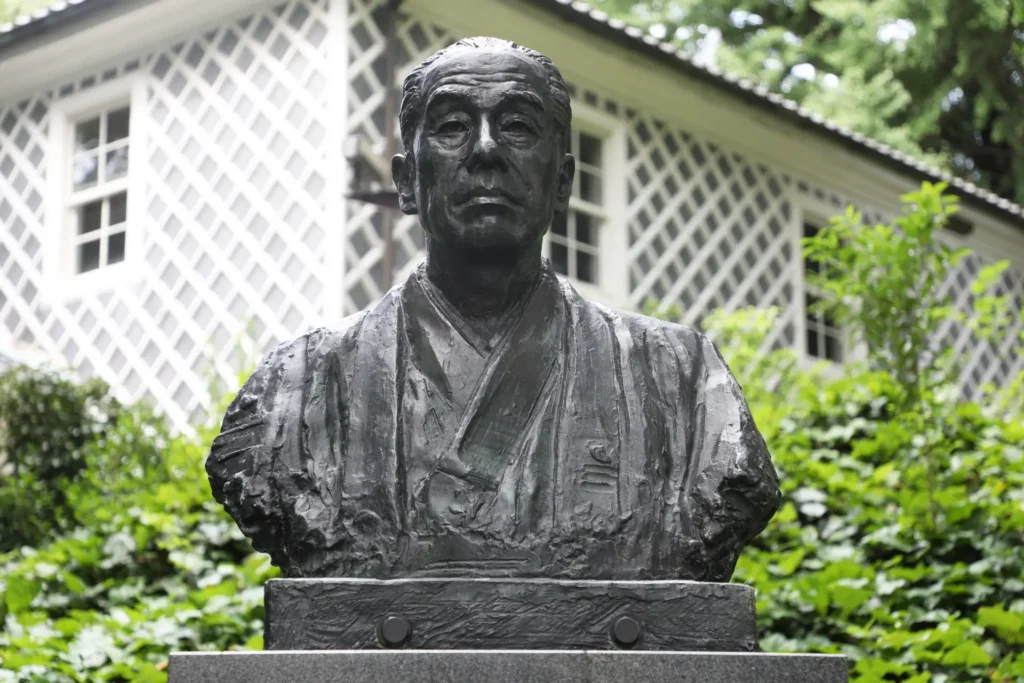
Fukuzawa Yukichi was an Enlightenment thinker and educator who was active during Japan’s Meiji era. He is known for founding the prestigious Keio Gijuku in 1868 and for nurturing many leaders. Fukuzawa was born into a lower-ranking samurai family of the Nakatsu Domain in Buzen Province (present-day Nakatsu City, Oita Prefecture), and he excelled in his studies from a young age.
His academic journey began under the tutelage of Shiraishi Tsuneto, a local Confucian scholar. He later studied under the renowned Dutch scholar Ogata Kōan in Osaka, developing a deep interest in Western science and culture. This experience profoundly influenced his later thoughts and educational philosophy.
Between 1860 and 1867, Fukuzawa participated in three official missions to Europe and America, learning about Western politics, economics, and culture. Upon his return, he played a key role in disseminating this knowledge in Japan through works like “Things Western” (“Seiyō Jijō”).
Fukuzawa’s contributions as an educator are immeasurable. The establishment of Keio Gijuku laid the foundation for modern education in Japan and continues to have a significant impact today. His book “An Encouragement of Learning” emphasizes the importance of education and the spirit of self-improvement, and it remains widely read.
The life and achievements of Fukuzawa Yukichi are highly regarded as central to Japan’s modernization and educational reform. His forward-thinking and innovative spirit influenced many Japanese people and contributed to the nation’s development.
A Brief Chronology of Fukuzawa Yukichi
Let’s take a look at the specific life events of Fukuzawa Yukichi in a simple chronological format.
| Year | Event |
| 1834 | Born as the fifth child of Nakatsu domain samurai Fukuzawa Hyakusuke and his wife Jun in Buzen Province (present-day eastern Fukuoka Prefecture and northwestern Oita Prefecture). |
| 1854 | Traveled to Nagasaki to study Dutch studies. |
| 1855 | Entered Tekijuku. |
| 1858 | Went to Edo and established a Dutch studies school, which later became Keio University. |
| 1860 | Boarded the Kanrin Maru and traveled to Britain. |
| 1866 | Published “Things Western” (“Seiyō Jijō”). |
| 1868 | Renamed his private school to Keio Gijuku. |
| 1872 | Published “An Encouragement of Learning.” |
| 1875 | Published “Outline of a Theory of Civilization.” |
| 1885 | Advocated “Leaving Asia” (“Datsu-A Ron”). |
| 1901 | Passed away due to a cerebral hemorrhage. |
1855: Entered Tekijuku
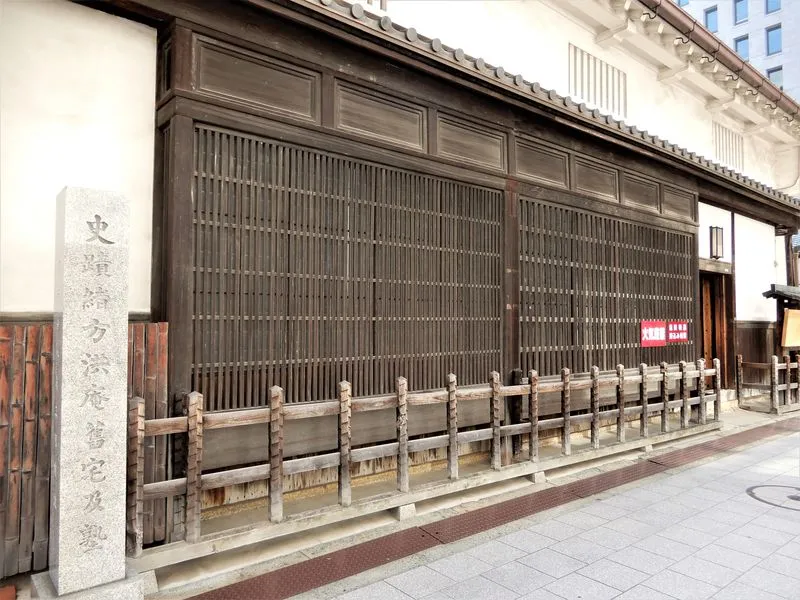
Fukuzawa Yukichi entered the Tekijuku in Osaka. This school, established by the Dutch scholar Ogata Kōan, provided knowledge of Western science and medicine. Tekijuku offered very progressive education for its time, and its students absorbed cutting-edge knowledge from both the East and the West, forming the foundation for the Meiji Restoration.
Among the students were many who later supported Japan’s modernization in the Meiji era, such as Ōmura Masujirō, Sano Tsunetami, and Hashimoto Sanai. Like his fellow students, Fukuzawa studied intensely, acquiring the knowledge that would underpin his later achievements.
1858: Establishment of a Dutch Studies School in Edo
Under orders from the Nakatsu domain, Fukuzawa Yukichi went to Edo and established a Dutch studies school at the Nakatsu domain’s residence in Edo. Having thoroughly studied Dutch studies at Tekijuku, Fukuzawa wanted to impart this knowledge to many others. This Dutch studies school would later become Keio Gijuku.
1860: Boarding the Kanrin Maru to Europe
In 1862 (Bunkyū 2), Fukuzawa Yukichi took a significant step. He boarded the Kanrin Maru, captained by Katsu Kaishū, and embarked on a long voyage to Europe. This historic journey began in Nagasaki and ultimately aimed for Britain. Along the way, they visited Cairo to see the grand pyramids and then proceeded to Paris. Their visits to various parts of Europe allowed them to experience cultural and scientific advancements firsthand.
In Britain, they vigorously toured numerous facilities, including the London International Exhibition, hospitals, schools for the deaf (deaf-mute schools), telegraph offices, the Thames Tunnel, Greenwich Observatory, naval schools, Armstrong gun factories, armories, the British Museum, and King’s College School. These visits provided Fukuzawa with invaluable opportunities to directly experience Western advanced technologies and educational systems, greatly influencing his later ideas.
Fukuzawa was already well-versed in the latest technologies through his Dutch studies, so he was not greatly surprised by what he saw. However, he was particularly intrigued by Western political culture and economic systems. Observing the British Parliament where members of the Conservative and Liberal parties debated and then shared drinks together provided fresh and stimulating insights into political operations and societal structures. These experiences significantly influenced Fukuzawa’s thoughts on political and social reforms, which he later advocated in his writings and educational activities.
Fukuzawa also witnessed European colonial rule, deepening his sense of urgency regarding Western power politics. This experience impressed upon him the importance of how Japan must maintain its international independence and establish itself as a self-reliant modern nation. Additionally, his encounters with Sinologists in London broadened his understanding of cultural and academic differences between Japan and China, influencing his later views on Asia and civilization.
He compiled these experiences in Europe into various books, such as “Things Western” (“Seiyō Jijō”), which he later published. Fukuzawa wanted to share his experiences with as many Japanese people as possible.
1868: Renaming the Private School to Keio Gijuku
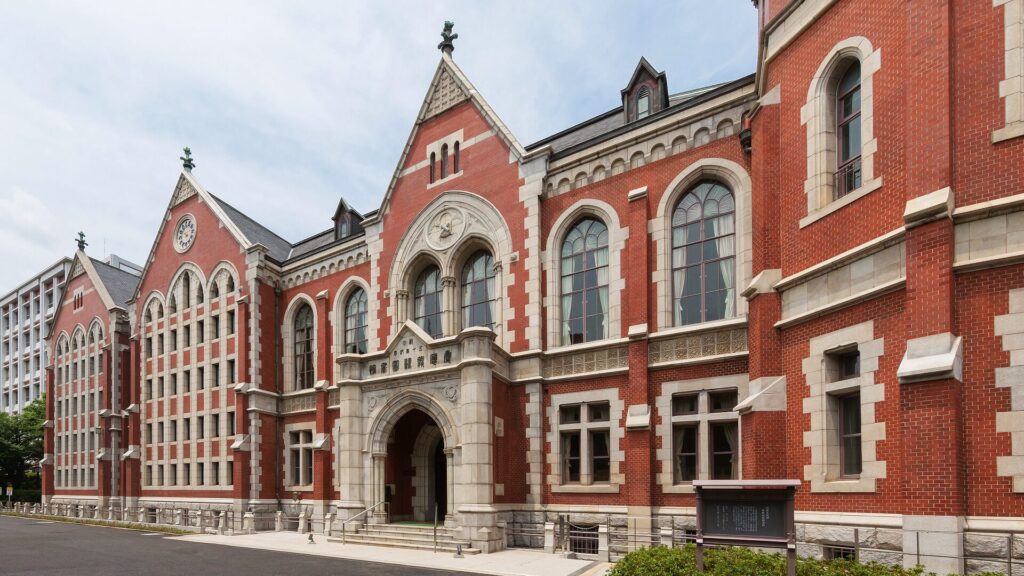
In 1858, Fukuzawa Yukichi founded a private school for Dutch studies in Edo, which he later renamed Keio Gijuku, taking the era name at the time. This school is the precursor to what is now Keio University.
The Dutch studies school Fukuzawa established during the Edo period later changed its name to Keio Gijuku and developed over approximately ten years. During this period, Fukuzawa made multiple visits to the United States and Europe to learn about advanced Western civilization and education systems.
At that time in Japan, the main method of learning was through private schools (shijuku), where one teacher would instruct a small number of students. Fukuzawa saw the limitations of such private schools and sought a larger, more open educational environment.
The “joint schools” he observed in the West, where educators, businessmen, and others from different backgrounds cooperated to run the schools, greatly inspired Fukuzawa. This experience motivated him to establish a similar school in Japan.
He thus revamped his private school, transforming it into a place where educators and students could learn from each other in an open, societal setting. This new school was named Keio Gijuku, taking its name from the era’s name, “Keio.” This school contributed to laying the foundation for modern education in Japan and nurtured many talented individuals.
1872: Publication of “An Encouragement of Learning”
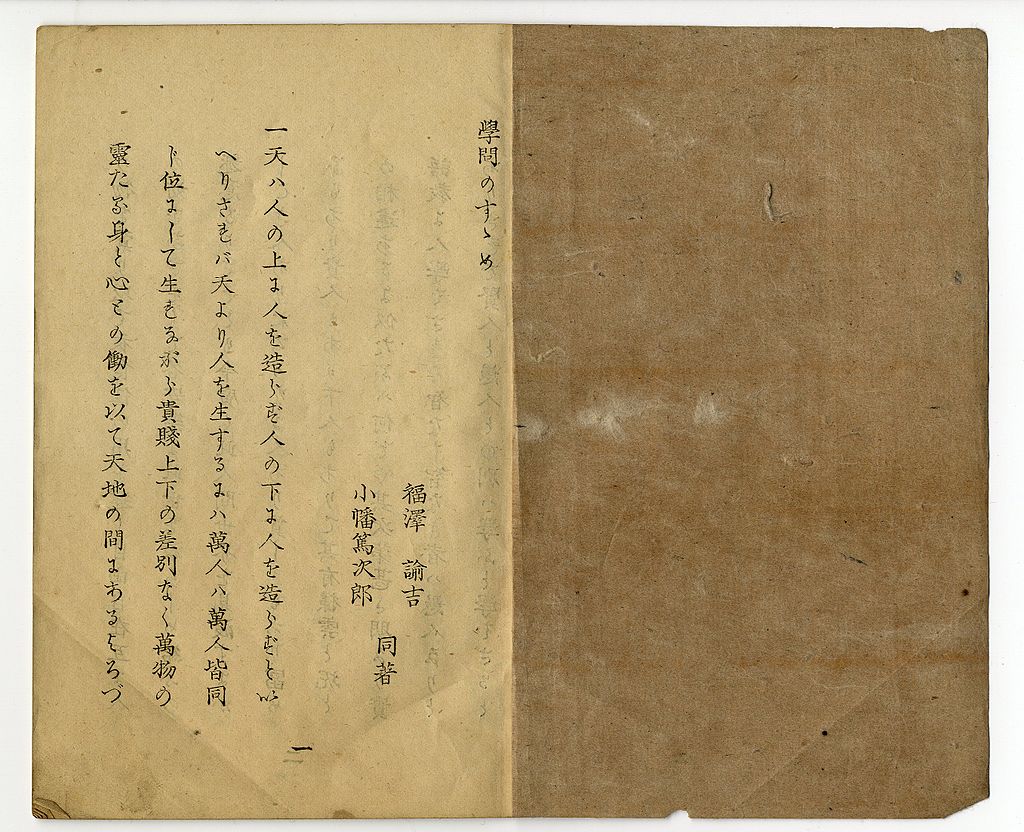
Fukuzawa Yukichi’s “An Encouragement of Learning” was first published in 1872 (Meiji 5) and became a bestseller that greatly influenced Japan’s Enlightenment period, with 17 volumes published by 1876 (Meiji 9). This book was Fukuzawa’s appeal to Japanese society about the importance of learning and the equality of all people.
The phrase “Heaven does not create one man above or below another” at the beginning of “An Encouragement of Learning” carries a strong message that all humans are born equal. Fukuzawa argued that this equality exists at birth, and one’s position and abilities in life are determined by how much they strive in their studies. He emphasized that cultivating the spirit of “independence of the individual, independence of the nation” through learning is the key to achieving true independence both personally and nationally.
This book widely communicated the importance of learning advanced Western knowledge and ideas to Japanese society, inspiring many young people to pursue education. As the founder of Keio University, Fukuzawa devoted himself to education, and “An Encouragement of Learning” can be seen as the culmination of his educational philosophy.
Through this work, Fukuzawa Yukichi solidified his status as a leading Enlightenment thinker in Japan, and his ideas laid the foundation for Japan’s modernization and social reforms. “An Encouragement of Learning” remains widely read today, serving as a classic that emphasizes the value of individual independence and learning.
1875: Publication of “Outline of a Theory of Civilization”
Fukuzawa Yukichi’s “Outline of a Theory of Civilization,” published in 1875, encapsulates his thoughts on Japan’s modernization and the adoption of Western civilization. This work argues for the necessity of introducing not only Western science and technology but also political systems and social structures. He advocated that Japan should retain its traditions while incorporating progressive aspects of the West.
Fukuzawa defined civilization as more than just scientific progress; it included political systems that ensure individual freedom and equality, and rational social systems that transform lifestyles. To him, civilization meant a fundamental transformation of the entire society, not merely the adoption of Western technology.
In “Outline of a Theory of Civilization,” Fukuzawa also emphasized that education is essential for the overall civilization of the nation. He believed that through education, individuals could develop independent thinking and decision-making abilities, which would contribute to the independence and development of the nation.
Furthermore, Fukuzawa was critical of the xenophobic trends seen in Japanese society at the time and stressed the importance of cooperation and mutual understanding in the international community. He argued that Japan should actively engage with other countries, learn from their strengths, and pursue the path to becoming a truly civilized nation.
1885: Advocacy of “Leaving Asia”
On March 16, 1885, through an editorial in “Jiji Shinpo,” Fukuzawa Yukichi argued that Japan should follow the Western powers and “leave Asia” to “join Europe.” This essay, known as “Datsu-A Ron” (Leaving Asia), became an influential idea in Japan’s international strategy during the Meiji era.
Fukuzawa viewed Europe as the symbol of “civilization” and Asia as a land of “uncivilized barbarism.” In his view, while Japan had rapidly modernized by adopting Western science, technology, political systems, and social structures since the Meiji Restoration, it should chart a different course from other Asian countries. He emphasized that Japan should align itself with advanced Western nations rather than maintaining solidarity with neighboring countries like China and Korea.
In “Datsu-A Ron,” Fukuzawa argued that Japan should not wait for neighboring countries to become enlightened but should distance itself from them and advance alongside Western civilized nations. This is encapsulated in his statement, “Our country should not wait for neighboring countries to reform themselves, but rather, we should part ways with them and move forward with the Western civilized countries, rejecting the bad friends of Asia.”
Impact of “Leaving Asia”
Fukuzawa Yukichi’s editorial had a significant impact on Japan’s foreign policy and national consciousness. “Datsu-A Ron” reinforced Japan’s sense of superiority over other Asian countries and helped foster a self-image as a civilized nation. It also justified policies that sought alliances with Western nations rather than focusing on relations with Asian countries.
Death of Fukuzawa Yukichi

Fukuzawa Yukichi’s personality was characterized by strong independence and passionate openness. He not only studied Dutch studies intensively to gain knowledge and improve his social status, but, as he advocated in “An Encouragement of Learning,” he also encouraged many Japanese people to focus on acquiring practical knowledge and to achieve social and economic independence through learning.
Fukuzawa had an open attitude towards Western civilization and science. He studied Dutch studies rigorously, a field that was entirely new to Japanese people at the time, and he traveled to Europe, where he witnessed the systems and technologies in place. He translated many Western books during the Meiji era, contributing to the spread of new knowledge among Japanese people. This helped challenge the feudal values of Japanese society and promoted transformation.
As the founder of Keio University, Fukuzawa had a deep passion for education. He worked to broaden the doors of learning, offering educational opportunities to women and people of lower social status. This reflected his belief that education was essential for individual independence.
Fukuzawa Yukichi’s Personality
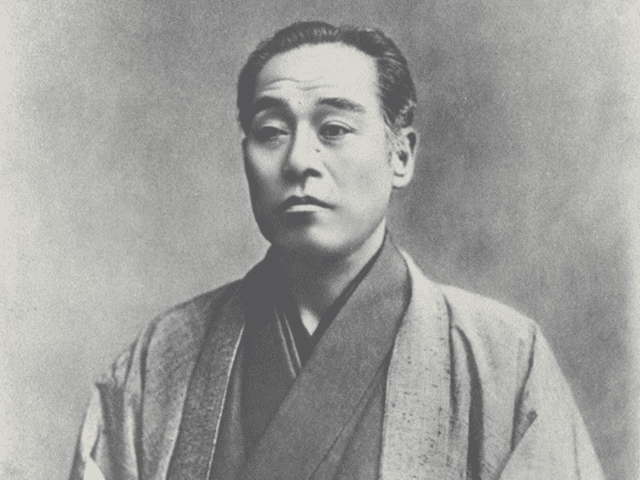
Fukuzawa Yukichi’s personality was characterized by strong independence and passionate openness. He not only studied Dutch studies intensively to gain knowledge and improve his social status, but, as he advocated in “An Encouragement of Learning,” he also encouraged many Japanese people to focus on acquiring practical knowledge and to achieve social and economic independence through learning.
Fukuzawa had an open attitude towards Western civilization and science. He studied Dutch studies rigorously, a field that was entirely new to Japanese people at the time, and he traveled to Europe, where he witnessed the systems and technologies in place. He translated many Western books during the Meiji era, contributing to the spread of new knowledge among Japanese people. This helped challenge the feudal values of Japanese society and promoted transformation.
As the founder of Keio University, Fukuzawa had a deep passion for education. He worked to broaden the doors of learning, offering educational opportunities to women and people of lower social status. This reflected his belief that education was essential for individual independence.
Fukuzawa Yukichi’s Anecdotes
Finally, let’s take a look at some anecdotes about Fukuzawa Yukichi. He has many interesting stories that are worth noting!
Replacing the Sacred Object of a Shrine
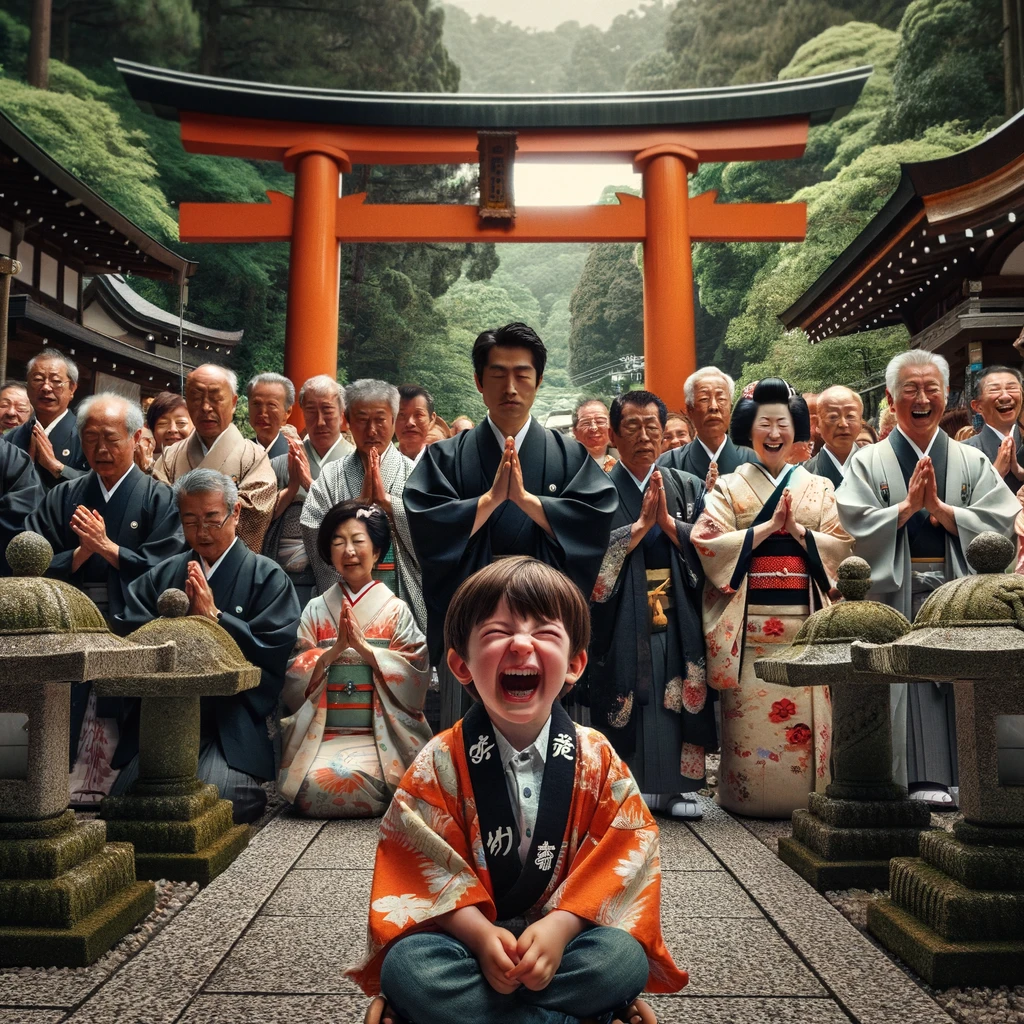
Fukuzawa Yukichi, from a young age, was unafraid to question and challenge superstitions and established concepts.
One day, Fukuzawa Yukichi became curious about what was enshrined at the local Inari shrine. When he secretly opened the shrine, he found only a single stone inside. From this discovery, he wanted to test how special the stone was and whether the adults would notice any change. Fukuzawa swapped the sacred stone with an ordinary stone from the roadside, but the devout adults continued to worship without noticing the difference. He laughed at how the adults mistook a mere stone for a sacred object and revered it with fear and respect.
Using a Sacred Talisman for Toilet Paper!?
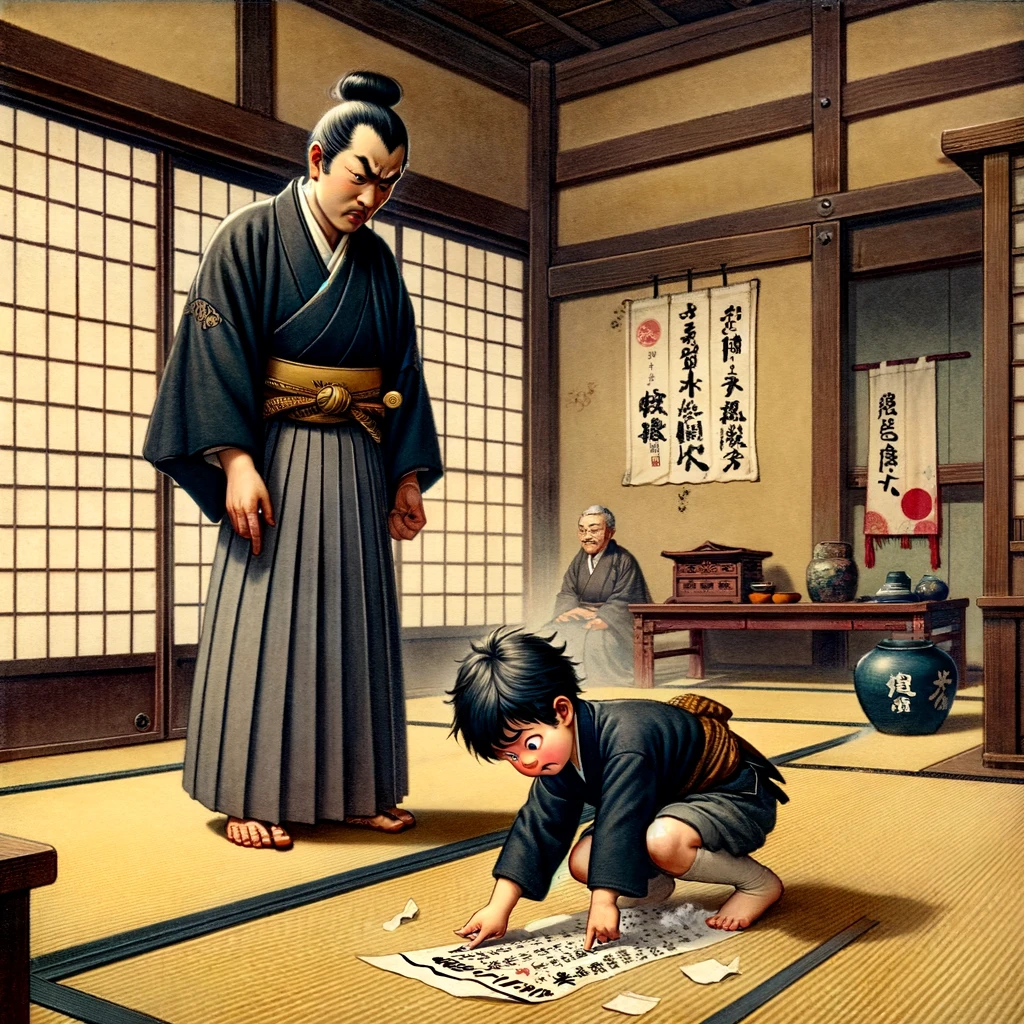
Furthermore, Fukuzawa Yukichi’s challenge against superstition continued.
On another occasion, Fukuzawa Yukichi accidentally stepped on a piece of paper with his lord’s name written on it and was scolded by his brother for the sacrilegious act. However, to Fukuzawa, it was just a piece of paper. This incident inspired him to conduct a more serious experiment. He brought back a talisman from a shrine and conducted a more provocative test. Not only did he step on the talisman, but he also used it in the toilet. This act was meant to question the sanctity of such objects and test the essence of such beliefs.
After these acts, Fukuzawa Yukichi suffered no misfortune, leading him to conclude that the talisman was merely a superstition. He kept these experiences secret to avoid reprimand from his family.
Faithful to Women
Fukuzawa Yukichi, known as a thinker and educator who greatly contributed to Japan’s modernization, also had admirable qualities in his private life. In particular, his sincere and devoted attitude towards women reflects his character.
At the age of 27, Fukuzawa Yukichi married O-Nishiki, the second daughter of Toki Tarouhachi, a samurai of the Nakatsu domain. They had nine children—four sons and five daughters—and it is said that they had a very harmonious marriage. At a time when having mistresses was not uncommon, Fukuzawa had no other romantic relationships.
Fukuzawa Yukichi valued his wife’s opinions and always listened to her. For instance, he loved eating fugu (blowfish), but O-Nishiki opposed it due to the danger of its poison. Fukuzawa respected her opinion and stopped eating fugu thereafter. This episode illustrates how much he respected and valued his wife’s opinions.
Fukuzawa Yukichi’s actions reflect his character, showing that he maintained his philosophical beliefs and consistency even within his family. His deep love and respect for his wife were the foundation of their lifelong devoted relationship.
Master of Iaido
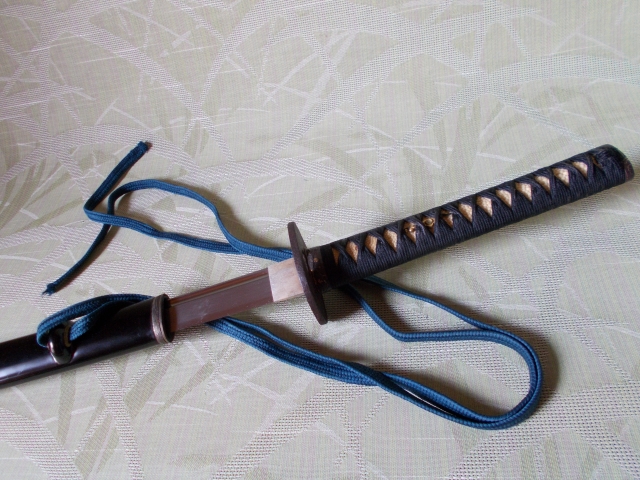
Fukuzawa Yukichi was also a master of Iaido. He began studying Chinese classics and swordsmanship at the age of five and attained the rank of menkyo kaiden in the Tashinkage-ryu school of Iaido. Although he never had any real-life combat experience, his Iaido skills were solid.
Iaido played an important role in Fukuzawa’s daily life. His serious nature led him to diligently practice swordsmanship until his later years, showing such dedication that he continued to perform a thousand Iaido cuts a day. Such rigorous daily training also contributed to his mental discipline.
However, it is suggested that this intense Iaido practice may have affected Fukuzawa’s health. He suffered from two strokes during his lifetime, and there were rumors that his excessive physical training might have been a contributing factor.
Popularized Curry Rice in Japan
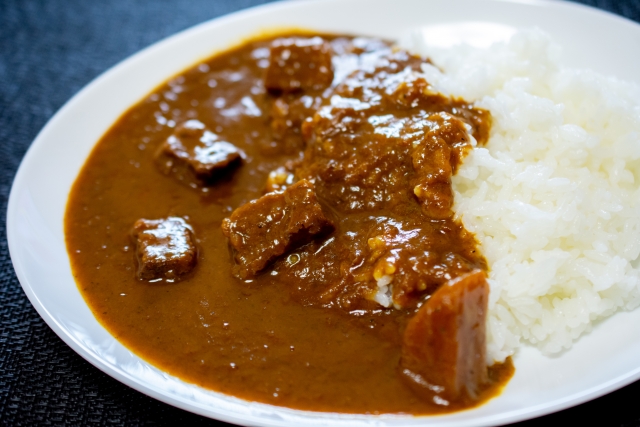
Fukuzawa Yukichi is known as a person who greatly contributed to Japan’s modernization, but his influence extends beyond academics and thought. He also actively introduced knowledge and culture from his overseas travels to Japan, including the now-essential dish of curry rice. It was none other than Fukuzawa Yukichi who popularized curry rice in Japan.
Through his visits to Western countries, Fukuzawa Yukichi experienced many new foods and cultures. Among them, he particularly noted curry rice. Although this dish was unfamiliar to the Japanese at that time, Fukuzawa Yukichi’s introduction of its appeal eventually transformed it into a beloved food throughout Japan.
Fukuzawa Yukichi’s introduction of words was not limited to curry rice. He also created many new concepts and cultural terms that have taken root in Japan. For example, words like “speech” as “演説” (enzetsu), “society” as “社会” (shakai), and “zoo” as “動物園” (dōbutsuen) are still commonly used today and were coined by him.
By spreading these words in Japanese society, the Japanese people’s worldview and cultural understanding deepened, marking a significant step in the integration of Western concepts and culture into Japan. The Western food culture that Fukuzawa Yukichi introduced along with curry rice has now become an indispensable part of Japanese dining, highlighting his tremendous influence.
The first to introduce the tuition system in Japan
Fukuzawa Yukichi, the founder of Keio University, was also the first to introduce the concept of tuition fees in Japan.
Before this, it was not common for private schools in Japan to charge tuition. However, upon establishing Keio University, Fukuzawa Yukichi implemented a system where tuition fees were collected to cover the maintenance costs of the school. This system enhanced the autonomy of educational institutions and provided a means to secure funds necessary for delivering high-quality education.
The introduction of tuition was a very innovative attempt at the time and contributed to expanding access to education. This allowed more people to have educational opportunities, advancing the development of human resources needed for Japan’s modernization.
Why Fukuzawa Yukichi was chosen for the 10,000 yen banknote
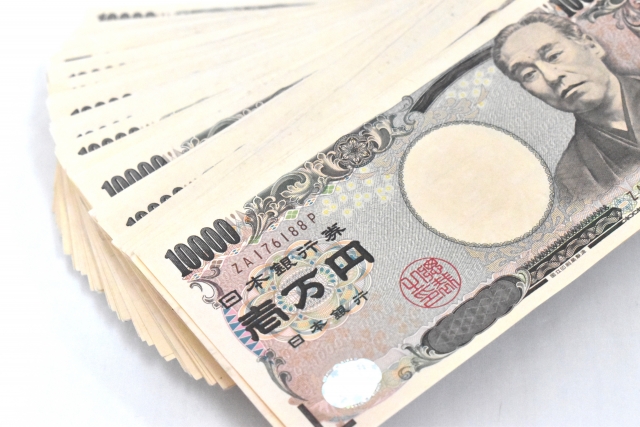
In 1984, the design of Japan’s 10,000 yen banknote was changed, replacing Prince Shōtoku from the Asuka period with Fukuzawa Yukichi. This change occurred against the backdrop of Japan’s heavy reliance on overseas exports and the impending economic bubble. Fukuzawa Yukichi was chosen mainly because he possessed the dignity suitable for the highest denomination banknote, was well-known both domestically and internationally, and was widely recognized as a cultural figure since the Meiji period.
Fukuzawa Yukichi was an educator who contributed to Japan’s modernization and was known as the founder of Keio University. By featuring his face on the 10,000 yen banknote, people in Japan and abroad would see his achievements daily, solidifying his status as a representative figure of Japan. This change reflects Fukuzawa Yukichi’s international influence and cultural significance.
Summary
How was it? This time, we introduced Fukuzawa Yukichi. From a young age, he diligently pursued his studies and significantly contributed to the modernization of thought and institutions. By founding Keio University, he established an educational environment that produced many important figures contributing to Japan’s development. Additionally, his ideas in “An Encouragement of Learning,” which emphasized the importance of pursuing knowledge throughout one’s life, continue to be cherished by many Japanese people and have shaped the foundation of Japanese thinking.



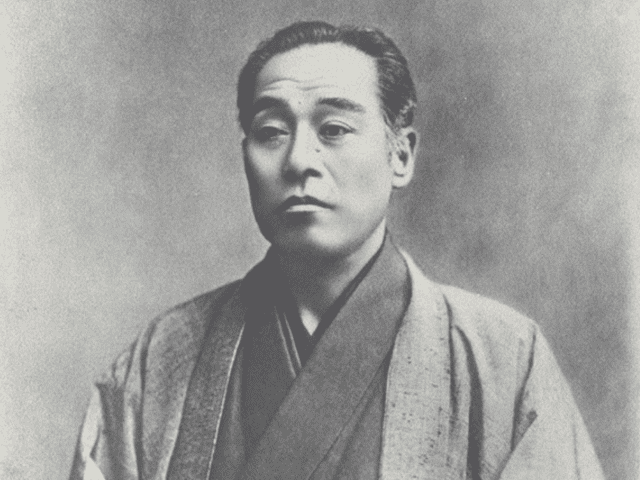
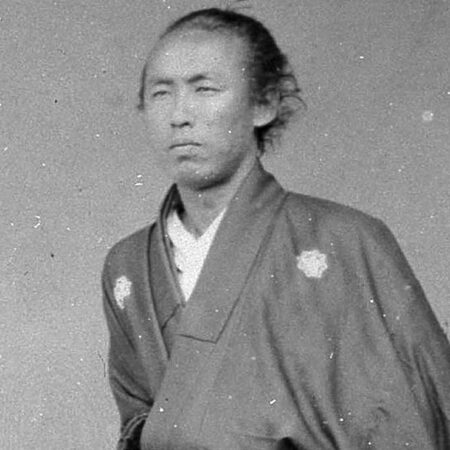
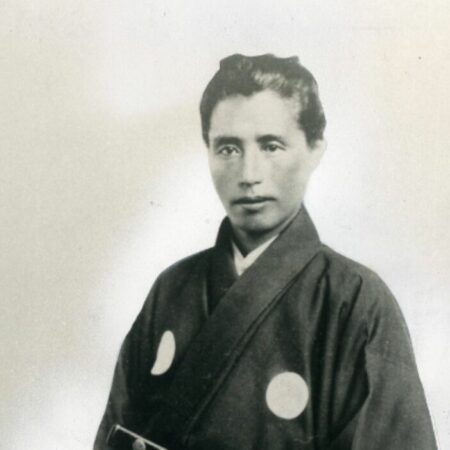
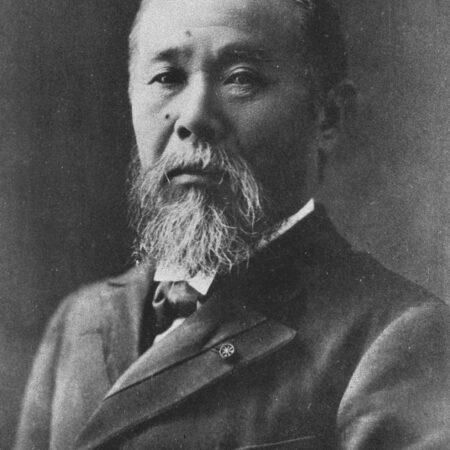
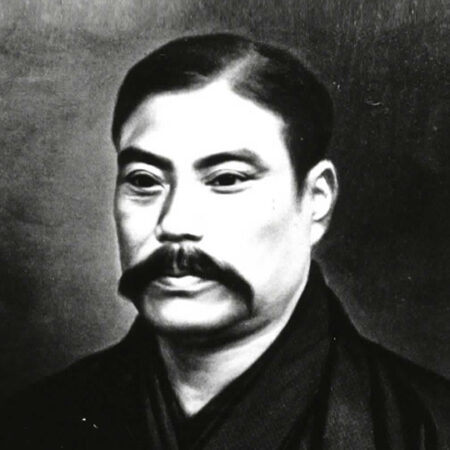
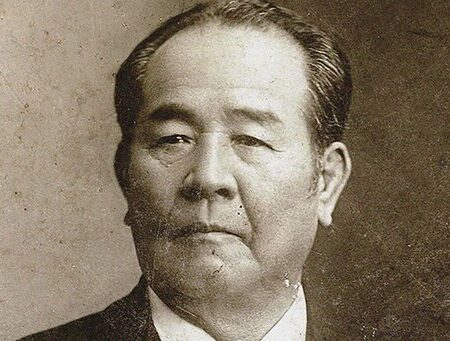
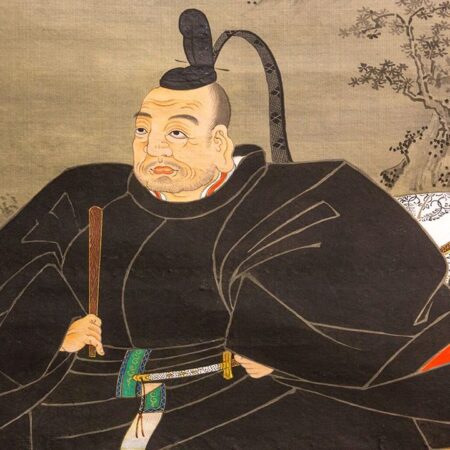
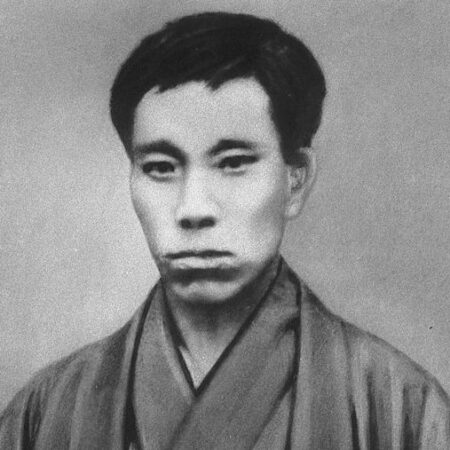
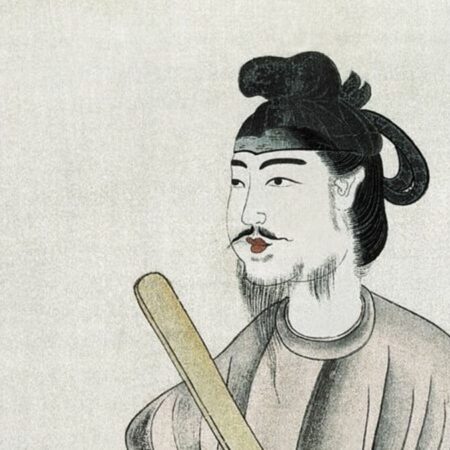


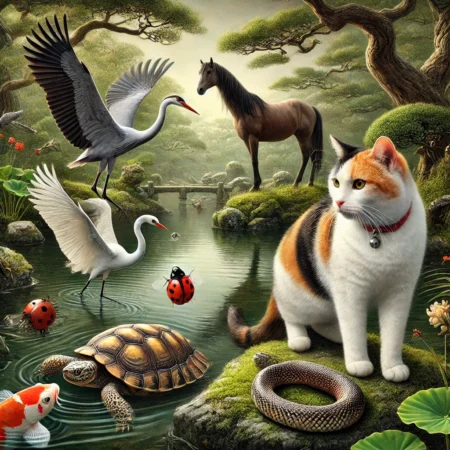
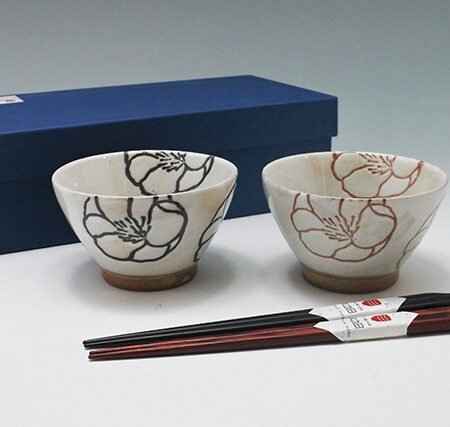
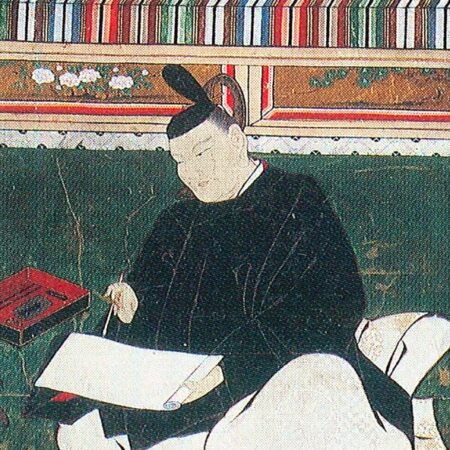
コメント